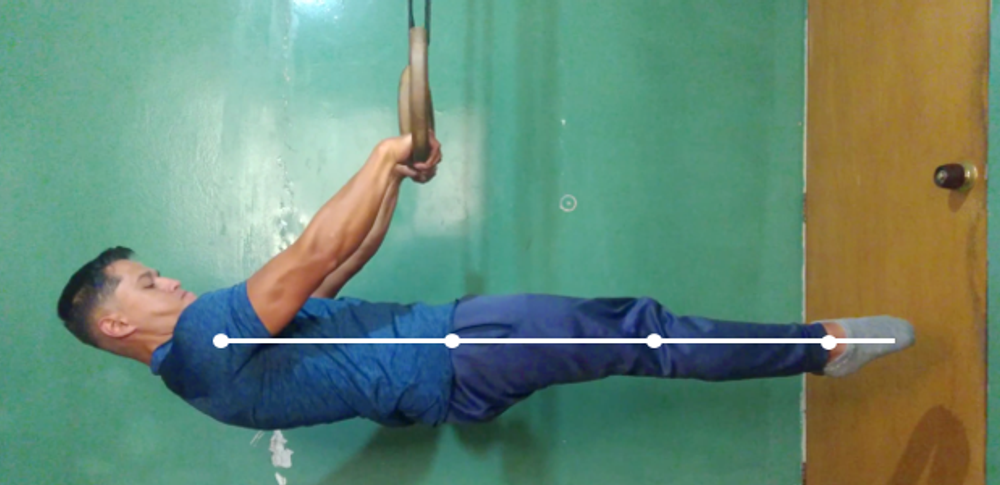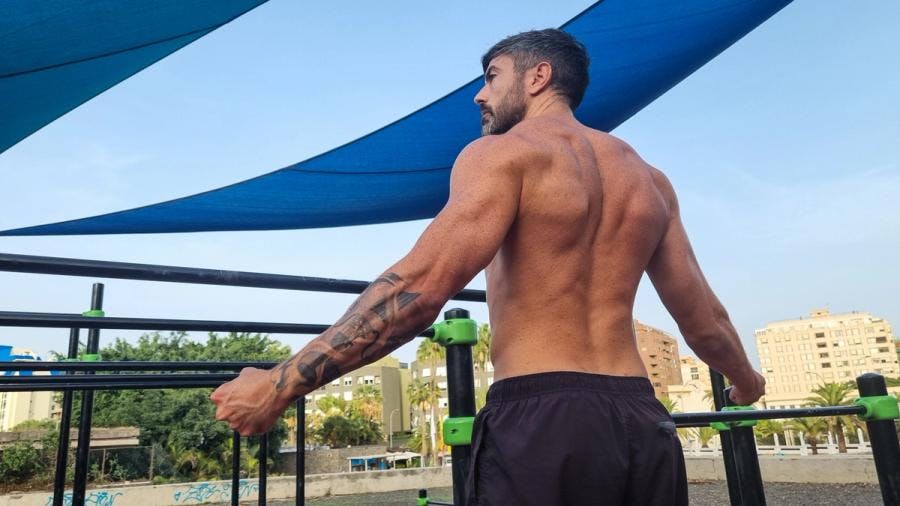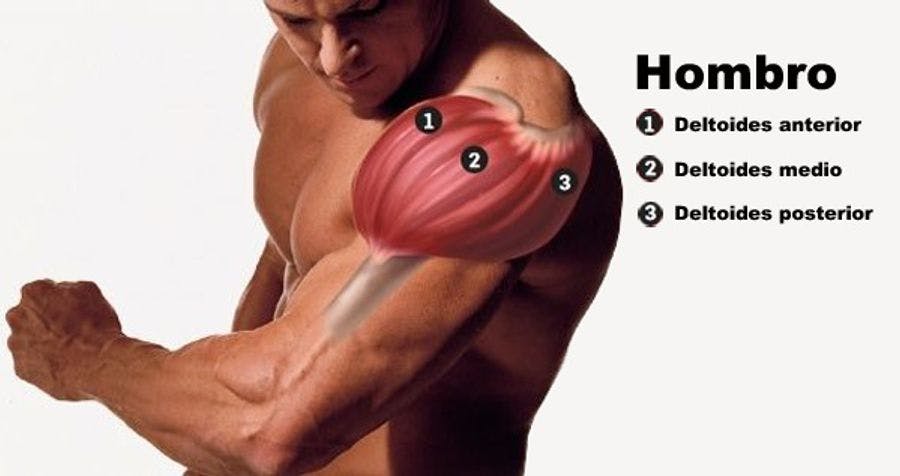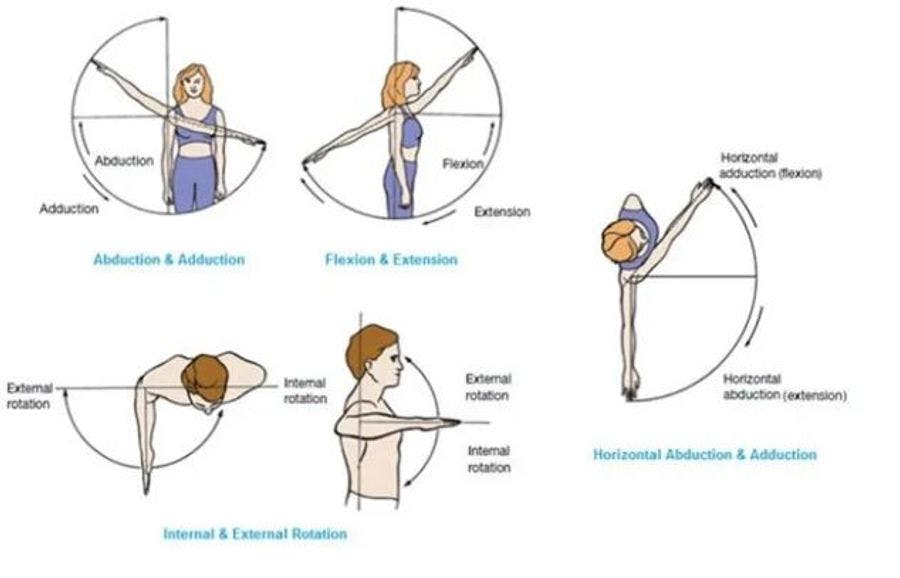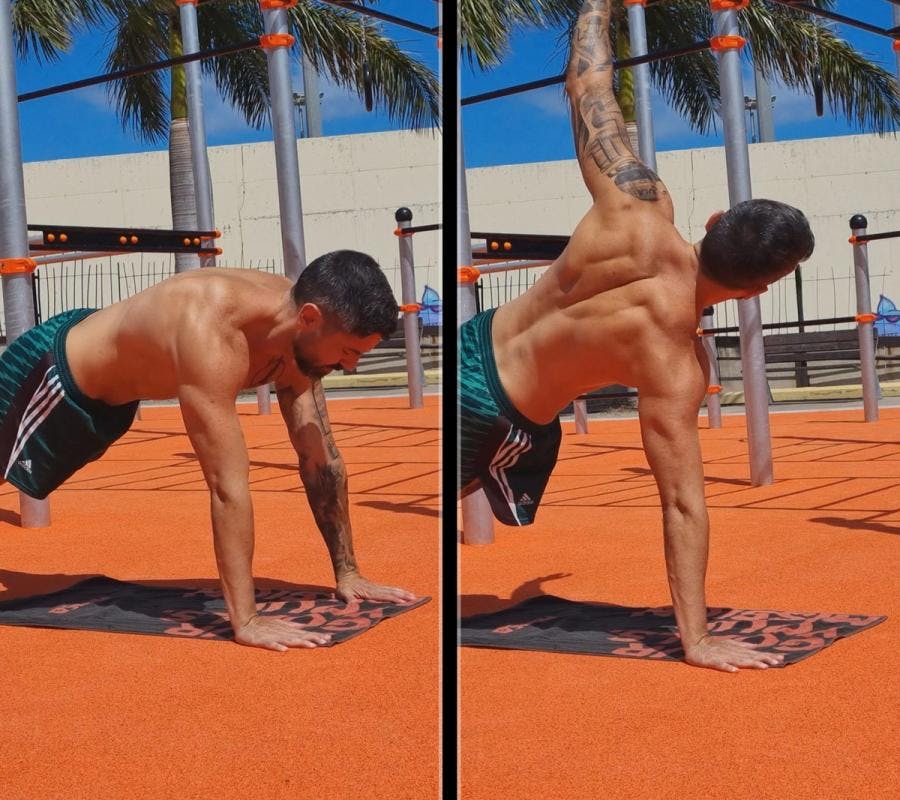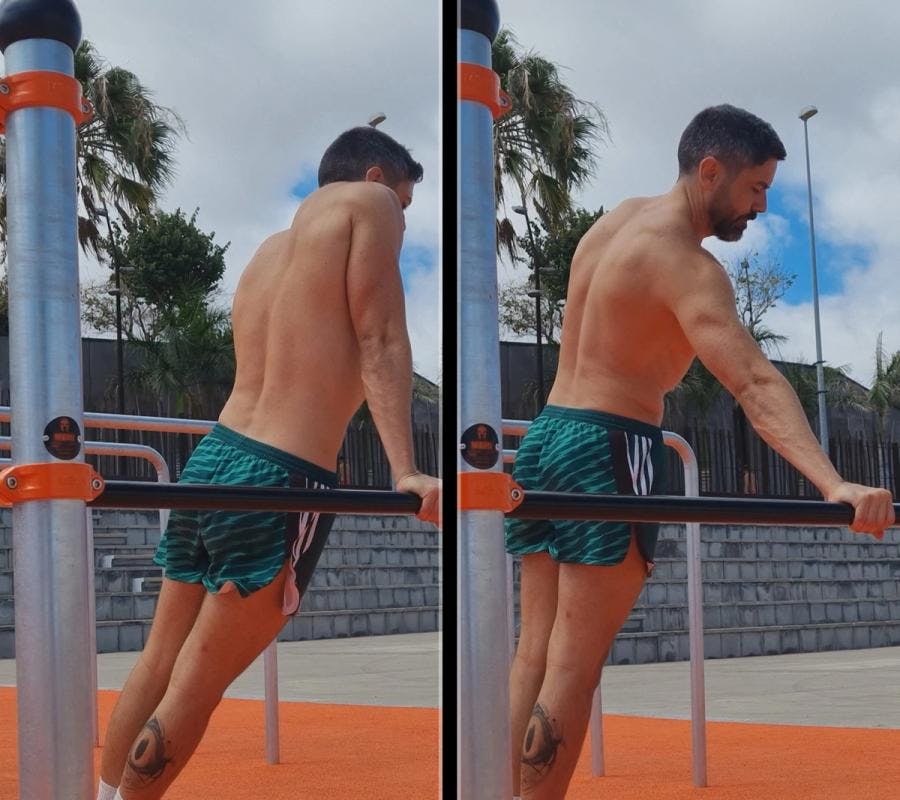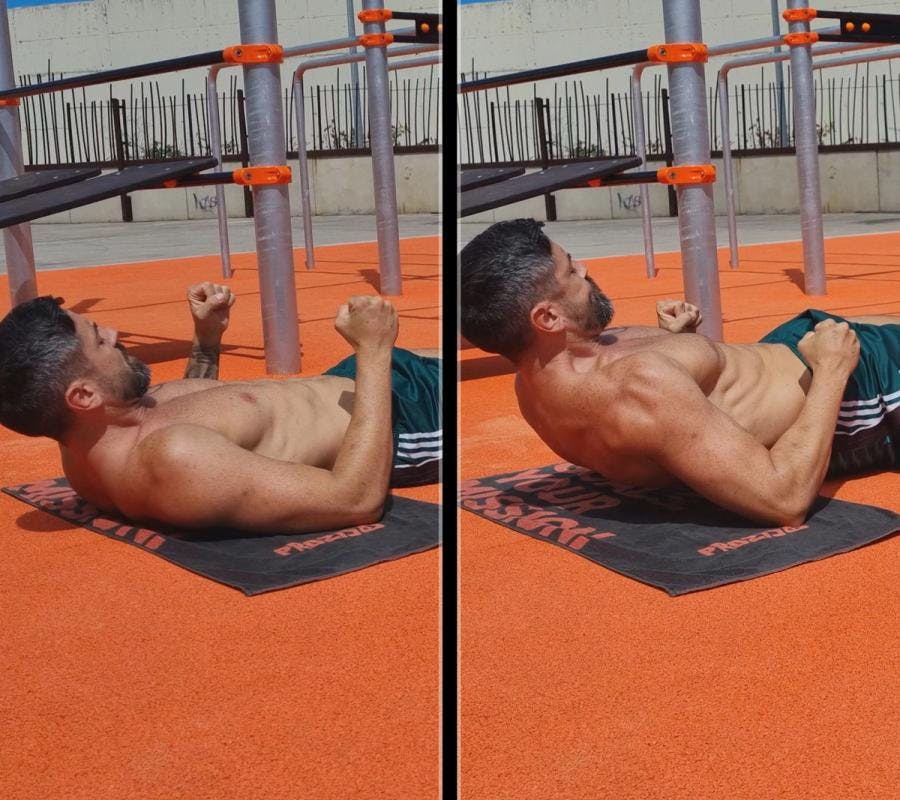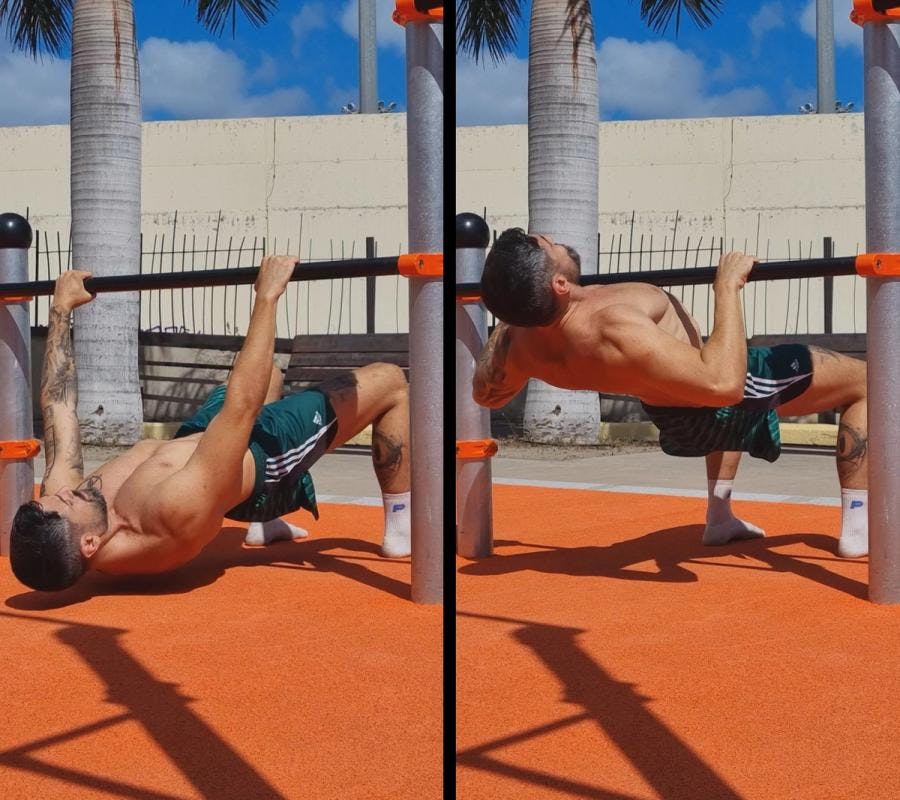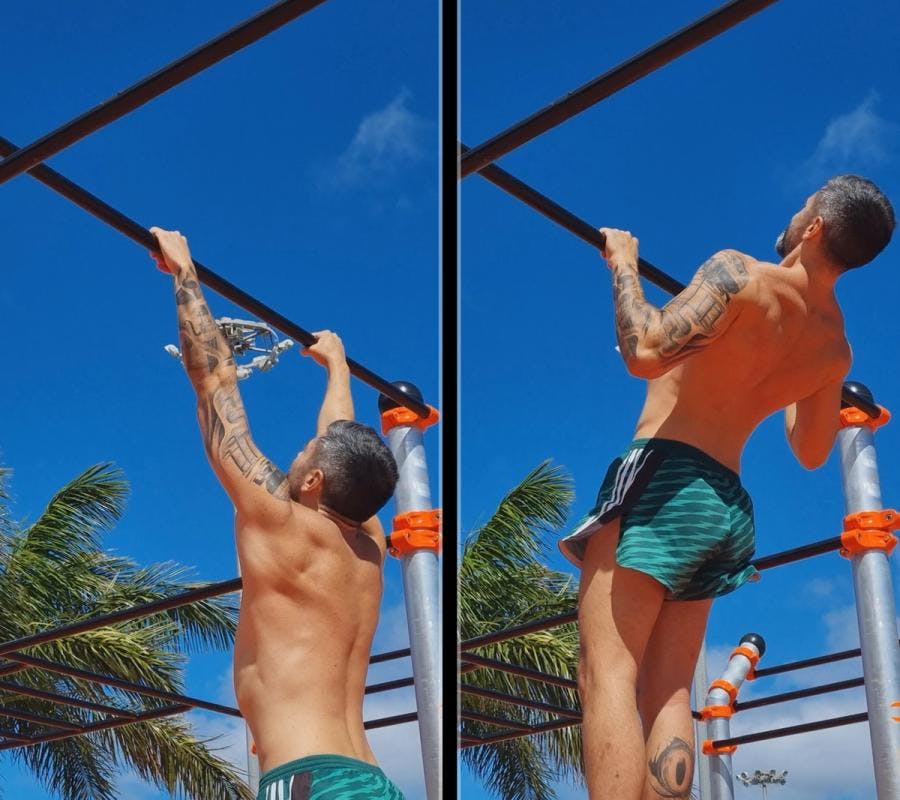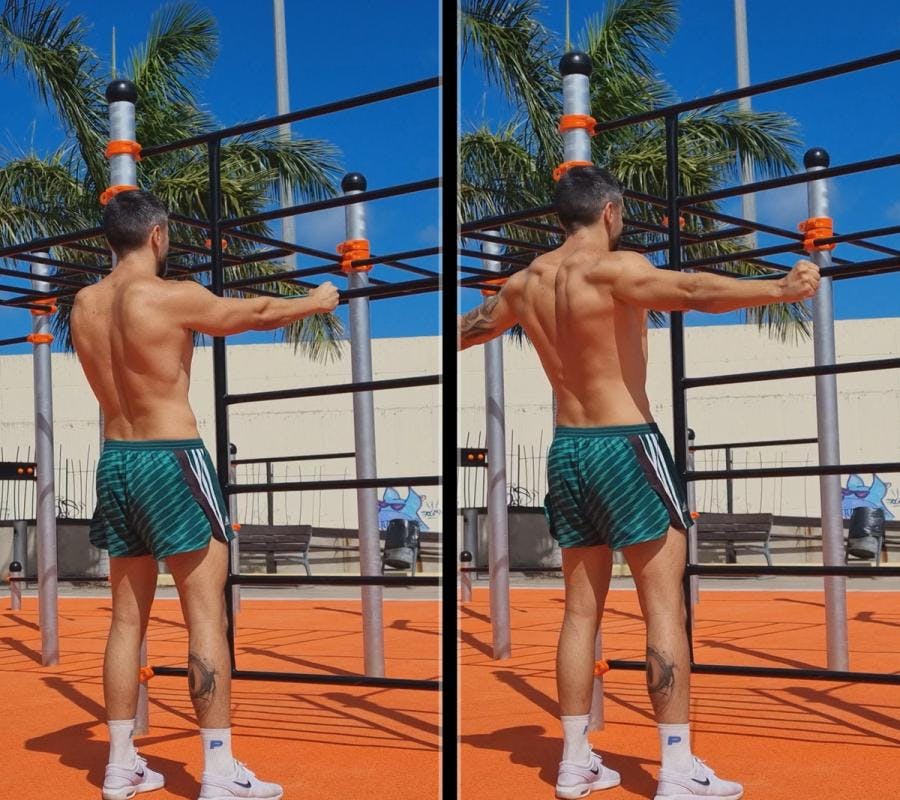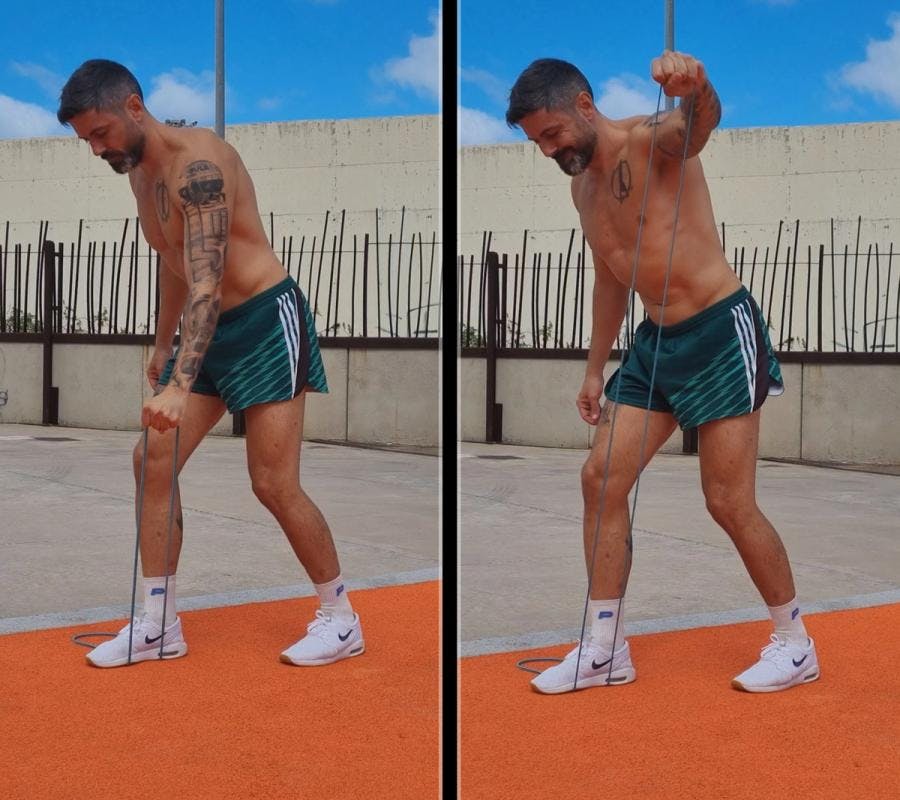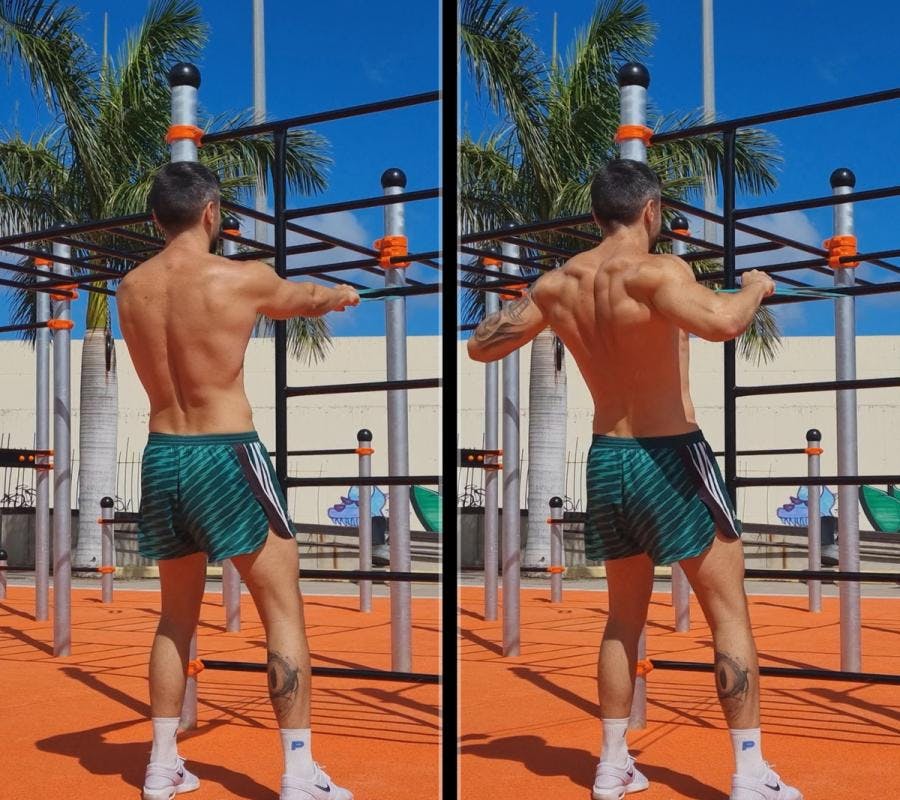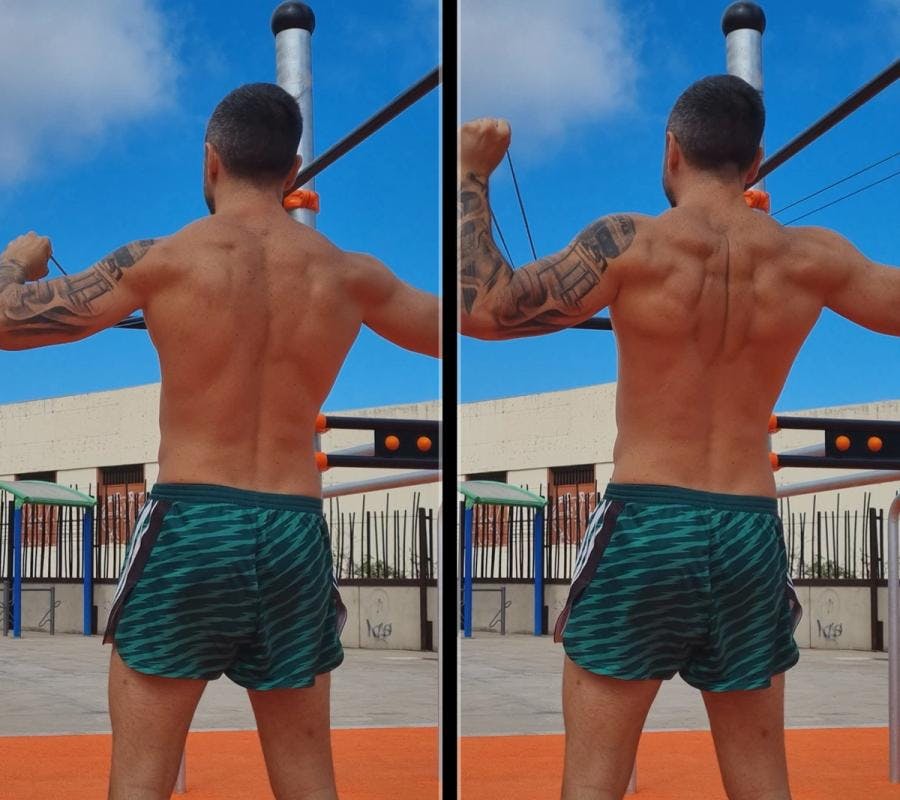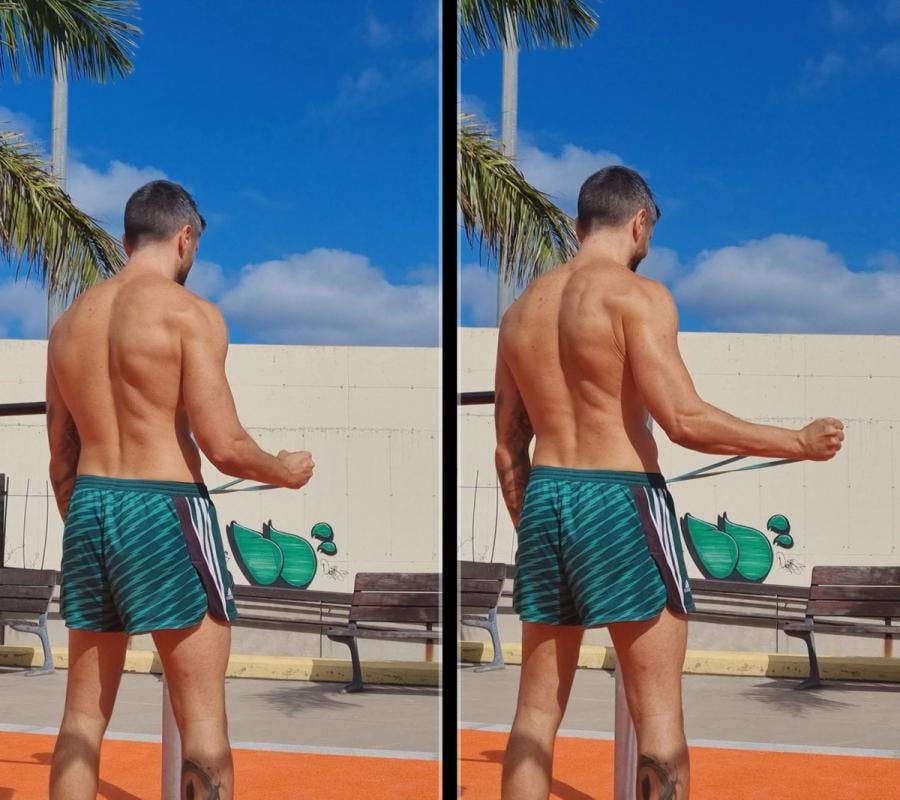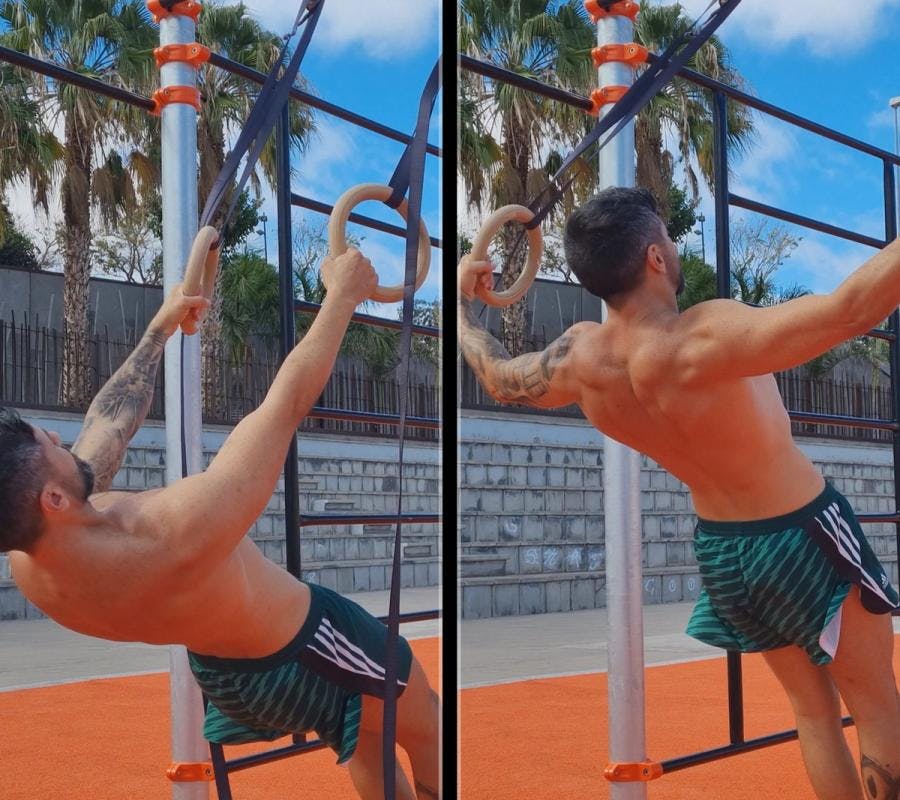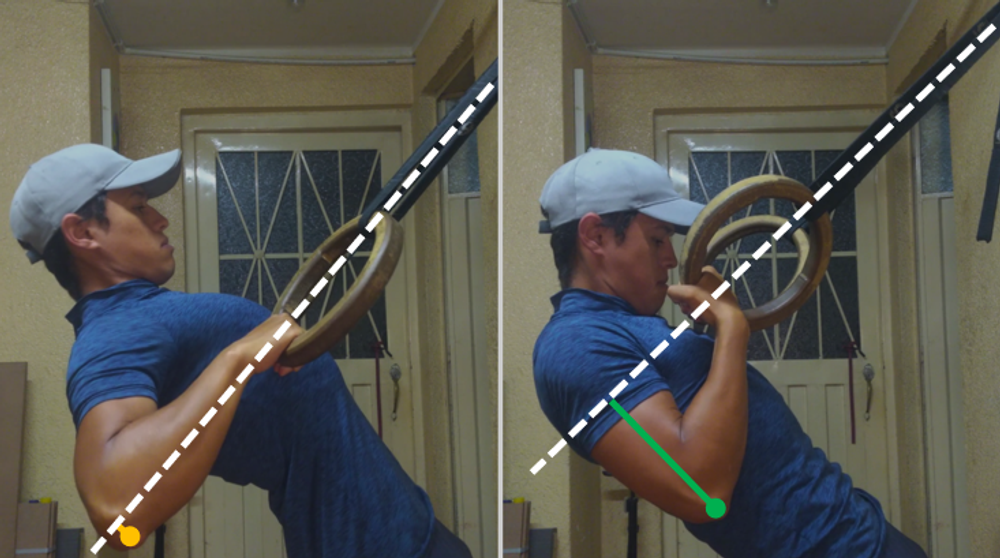If you practice calisthenics or train at home without material, you may already be quite clear about the typical exercises to train our pectorals, our back, even our legs.
But if I ask you what are the exercises to train the rear and lateral part of the shoulder (rear deltoid and middle or lateral deltoid) it may raise more questions. Those muscles are very important for our aesthetics, since large and round shoulders are going to be key in the visual aspect and it is also very useful to have them worked for compensation issues, to improve posture and prevent injuries.
In this article we are going to see the best exercises to train these muscles, either at home without equipment, on the calisthenics bars or with an elastic band.
Biomechanics of the posterior and lateral shoulder and benefits of training them
Before looking at the exercises we are going to quickly review biomechanics so that you understand the function of these muscles and why the exercises we are going to see work them.
The deltoid muscle is divided into 3 main parts, the anterior, lateral and posterior deltoids, the latter two being the ones that interest us in this article.
The lateral deltoid is primarily responsible for arm abduction and the posterior deltoid is primarily responsible for horizontal abduction and extension of the shoulder.
In addition, the synergistic muscles we work when doing posterior shoulder exercises are external rotators of the humerus, so they will help us with the typical decompensations so frequent today of internal rotation that cause bad posture and pain and injury problems.
So, knowing this, what exercises do we have in calisthenics that involve these movements and give these muscles a good workout?
Lateral and posterior shoulder exercises at home without equipment
We are going to start with exercises that can be done without equipment, so you can do them at home.
First of all we have the side plank twists, which can be done with the elbow extended or flexed, the latter version being slightly more difficult due to the shortening of the lever. In this movement we are performing a horizontal shoulder abduction, so the main muscle that we work is the posterior or rear deltoids, also having a secondary work on the lateral deltoids. You can extend the range of motion by touching the opposite shoulder with your free hand.
Next we have this rather peculiar exercise, and I have to admit that it is rather strange, but it gives a good lateral deltoid work. It consists of placing the hand at a height so that the abduction angle is more favorable.
Now we have the lateral raises leaning against a post, a door, a door frame, a wall, or whatever you can think of. The ideal is to put a towel or a shirt on your forearm, or if you have one of these sleeves.
This exercise seems to me to be one of the best I have tried for the lateral shoulder area, since simply moving a few centimeters away or closer you can tremendously change the difficulty, and it can go from being a very simple exercise adapted for beginners, to a real hell that only the advanced will be able to perform.
Finally we have different variants of scapular retraction with shoulder extension on the floor. These types of exercises at first glance seem simple but I assure you that they are very intense, and that with a few series they will leave you with a quite powerful work on the rear deltoids or rear shoulder. At first they will seem a bit strange to you, the technique is a bit difficult to assimilate, but when you learn to do them well you will be able to get a lot out of them. I recommend you vary the repetitions with the isometric holds.
Lateral and rear shoulder exercises in the Calisthenics park
Let's go now with exercises that you can do using the bars of a calisthenics park.
In this case we have the Australians, one of our favorite exercises, which, as we have already mentioned, can give us a very good work on the rear deltoid and secondary work on the lateral deltoid. In addition, if we do them with the elbows out, we reduce the work on the dorsal, which is why they help us to compensate and avoid internal rotation. If they are very easy for you, you can use advanced variants such as explosives, archers or one hand, or you can also apply high intensity techniques that I recently explained on this article.
On to the classic pull-ups, we can perform them with greater scapular retraction, pointing the chest towards the sky and therefore we will have more posterior deltoid work, but it is true that even so we will have a main dorsal work, which depending on the case might not be so interested in doing.
As an advanced version we have the bar rows, in which the same thing happens, there is an important work on the dorsal and it may not be so beneficial if we are looking to isolate.
Lateral and posterior shoulder exercises with elastic band
Lets continue with exercises that can be done with an elastic band, with these exercises we will achieve much more isolated work, so it may be interesting for you.
We can start with the rear shoulder fly with the band, known as rear delt flys.
Then we have the lateral flys, which you can do by stepping on the band or hooking it to a low bar or similar
We can continue with the rowing with our elbows out, similar to what we did with the Australians.
And the row with external rotation, one of the most complete variants, but which has a certain technical complexity, I recommend that you record yourself doing it and compare it with this video to make sure that you manage to do it correctly.
The pure external rotation, in which they have to try to make the movement very clean, without spreading the elbows or moving the torso.
As a bonus track I leave the rear delt flys with rings in case they are also useful.
Many of these exercises are already included in Calisteniapp and we will add the remaining ones shortly, as well as specific rear and lateral deltoid work routines, so download it and keep it updated as we are adding content almost every two weeks.
[@portabletext/react] Unknown block type "banner", specify a component for it in the `components.types` prop
I recommend that you not forget to include at least some of these exercises in your programming to, at least, make sure that you do not have problems with imbalance and excessive internal rotation. In addition, if you are interested in the aesthetic issue, round and full shoulders is one of the most important factors.
